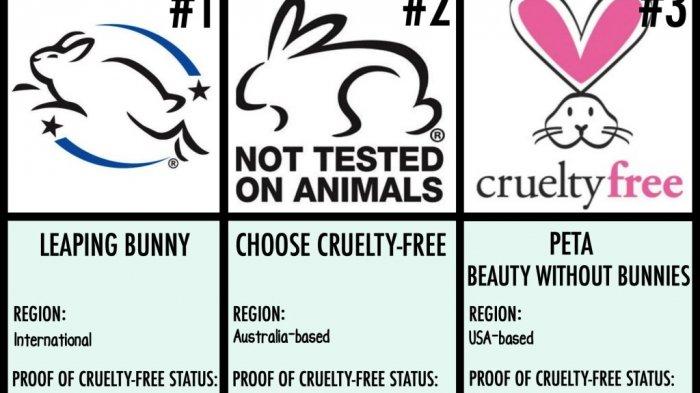In a world increasingly attuned to the ethical implications of consumer choices, the question of whether a brand is truly cruelty-free often sparks intense debate. Take Kryolan, a popular brand in the theatrical and professional makeup industry, as a case study. As consumers, we might ask ourselves: Is Kryolan animal cruelty-free, or does it, in fact, test on animals? This inquiry is critical, as it affects not only our purchasing decisions but also the broader narrative surrounding animal rights in the beauty sector.
At the core of this discussion lies a fundamental distinction between “cruelty-free” and “no animal testing.” Many consumers perceive these phrases as synonymous. However, their meanings can diverge significantly. The term “cruelty-free” generally indicates that a product or brand does not engage in testing on animals at any stage of product development. On the other hand, some companies that may claim “no animal testing” might still source raw materials from suppliers that conduct such tests. Thus, it is imperative to scrutinize these claims closely.
Kryolan asserts its commitment to producing safe and high-quality makeup products without resorting to animal testing. The brand emphasizes that it does not carry out animal testing on its finished products or their ingredients. This assertion positions Kryolan within the growing cohort of companies that advocate for ethical practices in the cosmetics industry. Nevertheless, the brand’s journey through the labyrinth of ethical beauty necessitates further examination.
One pivotal aspect to consider is the geographical reach of Kryolan’s operations. Regulatory frameworks surrounding animal testing vary across different countries. For instance, while the European Union enforces strict regulations regarding animal testing in cosmetics, other regions may still permit these practices. Kryolan distributes its products globally, which raises the question: Does the brand abide by different standards based on regional marketplace laws? This variable becomes significant when considering the brand’s global impact on animal rights.
In aligning with its ethical stance, Kryolan’s website explicitly denotes its cruelty-free policy. The brand consistently communicates its commitment to upholding moral integrity through transparent practices. This commitment culminates in its participation in initiatives that promote alternatives to animal testing, such as in vitro testing methods. But does this commitment translate unequivocally into effective long-term practices? Can a brand that operates in countries where animal testing is still prevalent truly be deemed cruelty-free? These questions form the crux of the challenge facing discerning consumers.
Moreover, it is essential to scrutinize the sourcing of ingredients used in Kryolan products. Even if the final product is not tested on animals, the procurement of raw materials can sometimes involve ethically grey areas. Consumers should seek clarity on whether Kryolan sources its ingredients responsibly, ensuring that its suppliers uphold similar ethical standards. Awareness of the full supply chain is crucial, and any gaps in information can diminish the credibility of a cruelty-free claim.
As we dig deeper, it is worth examining the regulatory bodies and certifications that help consumers navigate the landscape of cosmetics. Various organizations offer certifications that substantiate cruelty-free claims. The Leaping Bunny program, for instance, is a widely recognized certification that indicates a brand has met rigorous criteria to ensure animal testing policies are adhered to at every level. Kryolan does not hold the Leaping Bunny certification, an omission that could raise alarms for some ethically-minded consumers. Would aligning with such third-party certifications strengthen the brand’s credibility in the eyes of conscientious buyers?
In addition to understanding testing practices, it is equally essential to immerse oneself in the broader narrative of animal ethics and sustainability in the beauty industry. The increasing consumption of cruelty-free products reflects a shift in consumer attitudes toward more humane choices. Popular demand pushes brands like Kryolan to become more transparent and accountable. Thus, consumers wield the power to challenge companies, invoking the pursuit of ethical integrity through informed purchasing decisions.
Kryolan’s makeup artistry has not only adorned stages worldwide but has also garnered attention in educational spaces — instilling the significance of ethical consumerism in budding artists. As these artists develop their skills and professional identities, their choice of products can contribute to a more conscientious cosmetics industry. The challenge lies in unearthing the true essence of a brand’s practices while shaping the future of animal rights in beauty.
While Kryolan may sincerely proclaim a cruelty-free approach, the complexity of global supply chains, varying regulations, and the absence of stringent third-party certifications leaves room for interpretation. In asking, “Is Kryolan animal cruelty-free or does it test on animals?”, we navigate a landscape peppered with contradictions and uncertainties. Ultimately, educated consumers can send a powerful message to the industry: ethical standards matter. Brands cannot merely coast on surface claims; they must cultivate a culture of accountability. The responsibility rests not only with the brands but with the consumers who propel the demand for humane and ethical beauty products.
As we draw this discourse to a close, we are reminded that every choice carries weight. Whether through the lens of artistry, commerce, or advocacy, the implications of our decisions reverberate. Striving for a cruelty-free world necessitates vigilance, inquiry, and an unwavering commitment to our collective responsibility toward our fellow sentient beings. Will you take up the challenge and prioritize your choices consciously, in pursuit of a more humane beauty industry?








